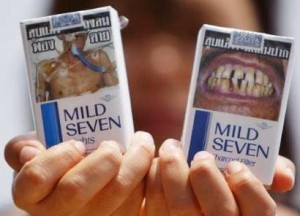People who cringe at the weird-sounding chemical additives in food, like sodium stearoyl-2-lactylate, guar gum or disodium EDTA, are starting to create and share home-made versions of their favorite processed foods that are free of artificial chemicals and additives. On Pinterest, a social media website that facilitates sharing of recipes, a growing number of people are concocting and sharing chemical-free versions of their favorite highly-processed foods. One member shared a recipe for home-made “Condensed Cream of Something Soup,” offered as a chemical-free thickener to use in casseroles instead of expensive and additive-filled canned Campbell’s “Cream of” soups. Another person posted a recipe for home-made Oreos that has gotten raves. Still another person shared a way to make her favorite childhood processed food, Pop Tarts, at home using recognizable ingredients. Someone who claimed to be “disgusted” by processed, bottled Bleu cheese dressing posted a simple recipe for home-made Bleu Cheese dressing. Still someone else shared an easy recipe for do-it-yourself red enchilada sauce, saying “you’ll never go back to the canned, store-bought stuff again.” A substantial portion of our modern food supply is manufactured in factories using chemicals and additives, some of which, according for the Center for Science in the Public Interest, are poorly tested and may not be worth the risk of ingesting them.
Corporations, Economics, Equal rights, Ethics, Ethnic/Minority, Human rights, Marketing, Poverty, Worker advocacy
Walmart Workers Tell the Real Stories of Working at Walmart
by • • 0 Comments
 Walmart employees have embarked on an effort to bring more respect, better pay and improved working conditions to all Walmart workers. Their group, Organization United for Respect at Walmart, or OURWalmart, has a website, ForRespect.org, lists exactly what employees want from Walmart. They want every employee to get a company policy manual and assurance that the company will enforce its policies equally without discrimination. They want full time work and wages and benefits high enough so they won’t have to depend on government assistance to survive. They seek dependable, predictable work schedules, and affordable health insurance. Walmart workers report that Walmart has been retaliating against workers who speak out about their low wages, unsafe working conditions and other issues they have with the company, and workers want the freedom to speak their mind without retaliation. OURWalmart also started a second website, WalmartAt50.org, to get a jump on the one-sided spin they expect the company to churn out about their anniversary. The site commemorates Walmart’s 50th anniversary by allowing Walmart “associates” to share stories of how they are treated at work, the difficulties they have in trying to advance within the company and what it’s like to try to live on Walmart’s super-low wages. The site also allows community members and owners of small businesses to post stories about how Walmart has impacted their living standards. Walmart workers and customers alike can share their stories on the site, and can upload photos. The site maintains that Walmart’s business model has dragged down the middle class and been bad for America. Their slogan is “Change Walmart to Rebuild America.” The site says that the “America Walmart helped to create isn’t working for most of us.”
Walmart employees have embarked on an effort to bring more respect, better pay and improved working conditions to all Walmart workers. Their group, Organization United for Respect at Walmart, or OURWalmart, has a website, ForRespect.org, lists exactly what employees want from Walmart. They want every employee to get a company policy manual and assurance that the company will enforce its policies equally without discrimination. They want full time work and wages and benefits high enough so they won’t have to depend on government assistance to survive. They seek dependable, predictable work schedules, and affordable health insurance. Walmart workers report that Walmart has been retaliating against workers who speak out about their low wages, unsafe working conditions and other issues they have with the company, and workers want the freedom to speak their mind without retaliation. OURWalmart also started a second website, WalmartAt50.org, to get a jump on the one-sided spin they expect the company to churn out about their anniversary. The site commemorates Walmart’s 50th anniversary by allowing Walmart “associates” to share stories of how they are treated at work, the difficulties they have in trying to advance within the company and what it’s like to try to live on Walmart’s super-low wages. The site also allows community members and owners of small businesses to post stories about how Walmart has impacted their living standards. Walmart workers and customers alike can share their stories on the site, and can upload photos. The site maintains that Walmart’s business model has dragged down the middle class and been bad for America. Their slogan is “Change Walmart to Rebuild America.” The site says that the “America Walmart helped to create isn’t working for most of us.”
Advertising, Ethics, Health, Human rights, Lobbying, Marketing, Media, Tobacco
Cigarette Makers Thwart Improved Health Warning Labels
by • • 0 Comments

Thai cigarette packs, with graphic health warning labels. Cigarette makers have blocked use of such labels in the U.S. through a lawsuit.
A newly-released study of previously secret, internal tobacco industry documents shows the multinational cigarette companies have been working consistently behind the scenes since 1966 to 2012 to block stronger health warning labels on cigarette packs. On-pack health warning labels are an effective and inexpensive way of educating the public about the health hazards of smoking. For decades, countries around the world have been trying to make these labels more effective, for example by using more strongly-worded warnings, or graphic photos of tobacco-related diseases like cancerous lungs, people with tracheotomies or rotting teeth. But cigarette companies view these improved labels as a “global threat” and formed international task forces to block their use.
Advertising, Consumer advocacy, Media
Whatever Happened to the 2010 TV Commercial Volume Law?
by • • 3 Comments
 In December, 2010, President Obama signed the Commercial Advertising Loudness Mitigation (CALM) Act, which required television broadcasters to turn down the volume on those annoyingly loud commercials that suddenly blast your ears out during your favorite TV shows. The new law ordered broadcasters to air commercials at the same average volume as the TV shows during which they appear. But now, almost two years later, TV commercials are still annoyingly loud. So what happened to the law?
In December, 2010, President Obama signed the Commercial Advertising Loudness Mitigation (CALM) Act, which required television broadcasters to turn down the volume on those annoyingly loud commercials that suddenly blast your ears out during your favorite TV shows. The new law ordered broadcasters to air commercials at the same average volume as the TV shows during which they appear. But now, almost two years later, TV commercials are still annoyingly loud. So what happened to the law?
Children, Economics, Ethics, Health care, Human rights, Insurance, politics, Poverty
Poor and Uninsured in Texas? Tough Luck, Says Gov. Rick Perry
by • • 0 Comments
Texas is number one in the country for people without health insurance. Fully one quarter of Texans have no health insurance at all. Another 26% are on Medicaid, Medicare or other public assistance programs that provide help to get health care, according to the Texas Medical Association. The poverty rate in Texas is also high. Twenty-one percent of adults, 17% of the elderly and 34% of Texas’ children live in poverty. Despite these dire circumstances, Texas Gov. Rick Perry is refusing an offer from the federal government to expand Medicaid, even though the feds will pick up 100% of the cost for the first three years. The reimbursement rate will drop to 90 percent after that. The offer is part of the Patient Protection and Affordable Care Act, or “Obamacare,” a slate of changes to health insurance enacted in the U.S. that Gov. Perry and some other Republican governors dislike. Last July, Perry wrote a letter to the U.S. Department of Health and Human Services last July (pdf) in which he called the offer to expand Medicaid a “gun to the head” of his state. He called the Affordable Care Act a “power grab,” and reiterated that statement in a November 18 blog post on his personal website. By refusing to accept the federal assistance to expand Medicaid, Gov. Perry is turning down $164 billion that would go to help insure the poorest Texas citizens. The assistance would also stimulate Texas’ economy. An analysis by the Center for Public Priorities, a think tank based in Austin, found that every federal dollar the state would spend on Medicaid assistance would return $1.29 in “dynamic state government revenue” over the first ten years of expansion, since Medicaid expenditures generate economic activity while creating a healthier, more productive population.
Education, Ethics, Health care, Human rights
PBS Documentary Explores the Growing Need for Easy, Painless Death
by • • 0 Comments
As America’s population ages, tens of millions of people find they can’t afford health insurance, medical care is getting more expensive and is difficult for many people to get. Our culture focuses on prolonging life at virtually any cost. At the same time, as fewer people want to take the option of prolonging their life at any cost, the reality that death as a natural part of life is little acknowledged or discussed. This difficult situation is leaving more people seeking gentle, accessible and painless ways to die. A new PBS Frontline documentary, “The Suicide Plan,” dares to explore the difficult subject of the growing need for people to find easy and painless ways to die. Filmmakers Miri Navasky and Karen O’Connor explore the realities of people who are actively seeking ways to die without violence or suffering. While researching and filming the program, the filmmakers say they were astounded by the number of people yearning for information on how to control the timing and manner of their own death. The filmmakers were also “completely surprised,” they say, to discover the extent of the underground organizations growing up around meeting this growing, unmet need. Navaski says, “Here — in the underground world — doctors are reluctant to prescribe lethal doses of medication, so people who want help dying are relying of imperfect, cobbled-together methods.” The documentary explores organizations like the Final Exit Network and Compassion and Choices, whose missions are to help people find ways to achieve a peaceful death. The Suicide Plan aired on Tuesday, November 13. The documentary can be viewed here.
Source: PBS.org, November 13, 2012
Economics, Ethics, Front groups, Lobbying, Marketing, Propaganda, Secrecy
New Youth Front Group Agitates for Cuts to Entitlement Programs
by • • 0 Comments
 Salon.com reports a new “youth” front group has appeared consisting of young people who have ostensibly joined together to fight the federal debt. The group, called “The Can Kicks Back,” issued a press release November 12 announcing its creation and casting itself as a “nationwide grassroots campaign.” The Can Kicks Back gives no physical address on its website, but Salon.com reports the group shares the same address as the New America Foundation, which receives funding from the Peter G. Peterson Foundation, among other foundations and big corporations. Peter Peterson is a Wall Street hedge fund billionaire who, according to Huffington Post, has “has personally contributed at least $458 million to the Peter G. Peterson Foundation to cast Social Security, Medicare, Medicaid and government spending as in a state of crisis, in desperate need of dramatic cuts.” Other prominent funders of the New America Foundation include Google, Microsoft, Nike, Merck, and Aetna insurance. Interestingly, Kick the Can’s advisory board consists mostly of older politicians like Alan Simpson, 81, former Republican senator from Wyoming, Erskine Bowles, 67, former Clinton chief of staff, Mickey Edwards, 75, former Republican congressman from Oklahoma. Salon.com reports that this isn’t Pete Peterson’s first attempt to form an astroturf “youth group” to agitate for cutting entitlement programs. In the 1990s Peterson funded two groups, one called “Third Millennium” and another called “Lead…or Leave,” basically to do the same thing. In fact, Jonathan Cowan, who headed up Lead…or Leave, now is on The Can Kicks Back’s advisory board.
Salon.com reports a new “youth” front group has appeared consisting of young people who have ostensibly joined together to fight the federal debt. The group, called “The Can Kicks Back,” issued a press release November 12 announcing its creation and casting itself as a “nationwide grassroots campaign.” The Can Kicks Back gives no physical address on its website, but Salon.com reports the group shares the same address as the New America Foundation, which receives funding from the Peter G. Peterson Foundation, among other foundations and big corporations. Peter Peterson is a Wall Street hedge fund billionaire who, according to Huffington Post, has “has personally contributed at least $458 million to the Peter G. Peterson Foundation to cast Social Security, Medicare, Medicaid and government spending as in a state of crisis, in desperate need of dramatic cuts.” Other prominent funders of the New America Foundation include Google, Microsoft, Nike, Merck, and Aetna insurance. Interestingly, Kick the Can’s advisory board consists mostly of older politicians like Alan Simpson, 81, former Republican senator from Wyoming, Erskine Bowles, 67, former Clinton chief of staff, Mickey Edwards, 75, former Republican congressman from Oklahoma. Salon.com reports that this isn’t Pete Peterson’s first attempt to form an astroturf “youth group” to agitate for cutting entitlement programs. In the 1990s Peterson funded two groups, one called “Third Millennium” and another called “Lead…or Leave,” basically to do the same thing. In fact, Jonathan Cowan, who headed up Lead…or Leave, now is on The Can Kicks Back’s advisory board.
Advertising, politics, Pop culture
Post-Election, Angry Citizens Seek Secession
by • • 2 Comments
 In the week since the general election, multiple online petitions have appeared asking the Obama Administration to allow certain states to secede from the union. The petitions seek independence for Utah, South Dakota, West Virginia, Nebraska, Pennsylvania, Alaska, Kansas, Oklahoma, Wyoming, Nevada and New York. There are two separate petitions for Ohio. Utah’s petition, created on November 11, states,
In the week since the general election, multiple online petitions have appeared asking the Obama Administration to allow certain states to secede from the union. The petitions seek independence for Utah, South Dakota, West Virginia, Nebraska, Pennsylvania, Alaska, Kansas, Oklahoma, Wyoming, Nevada and New York. There are two separate petitions for Ohio. Utah’s petition, created on November 11, states,
“We the people of the great state of Utah, do see that in today’s world the Federal Government has not led our citizens justly and with honor. We therefore as free men and women of our great state do believe that it is time to take matter [sic] upon ourselves to ensure our continued freedom, and to enact our own laws and here buy govern ourselves without the federal government’s involvement in our internal matters from this day forward.”
In response, someone created a petition asking the Obama Administration to strip the citizenship from, and peacefully deport each American citizen who signed a petition for any state to secede from the USA.
Advertising, Lies, politics, Women
Remember This Ad?
by • • 0 Comments
On September 10, 2007 MoveOn.org ran a full page ad in the New York Times charging General David Petraeus with “cooking the books for the White House.” The ad was in response to a report Petraeus issued to Congress about the situation in Iraq in which he concluded that the government’s surge strategy had worked and violence in Iraq was decreasing. MoveOn.org disputed Petraeus’ account of the situation in Iraq. Some members of Congress immediately jumped to Genral Petraeus’ defense. Republican John Cornyn of Texas introduced an amendment to “strongly condemn personal attacks on the honor and integrity of General Petraeus.” All 49 Republican senators and 22 Democratic senators voted for the amendment. Barack Obama, then a senator, refused to vote, calling the amendment “a stunt” and saying he abstained in order to register his “protest against these empty politics.” Multiple reports currently reveal that to reduce detection while communicating with each other, Petraeus and his mistress used a trick long used by terrorists to avoid detection when communicating through email: they established a shared GMail account, then composed messages to each other and stored them in the “Drafts” folder, where each could read them without having to transmit them. In having his affair, General Petraeus violated the trust of his wife of 38 years, Holly, who gained respect for battling against the financial sector’s abuses against military families, like illegal foreclosures and abusive lending practices.
Advertising, Elections, Ethics, Front groups, Lies, politics, Secrecy
Karl Rove Rendered Useless to Republicans
by • • 0 Comments
Karl Rove, whom Vanity Fair called “one of the most powerful unelected officials in the United States,” is facing criticism and derision after his two well-funded super pacs, American Crossroads and the more secretive Crossroads Grassroots Policy Strategies (“Crossroads GPS”), proved surprisingly ineffective after Democrats largely emerged victorious in the 2012 general election. Rove, a Republican political strategist who famously once dreamed of creating a “permanent Republican majority” in U.S. government, helped create the two groups which together sucked in over $300 million in the last election cycle, mostly from billionaires hoping to influence the election’s outcome. Crossroads GPS, which refused to make public the names of it’s super-wealthy donors, blanketed the U.S. with attack ads against Democratic candidates in which the group made notably false and misleading claims against candidates. Despite spending vast amounts of money, however, Rove’s groups were ultimately unable to influence the outcomes of the November 6 elections. Rove has spent the last week defending his super PACs and scrambling to devise a new strategy for boosting Republicans’ fortunes in elections nationwide. Rove served as former president George W. Bush’s deputy chief of staff. Since leaving the government, he has worked as a political strategist, consultant and a paid speaker. Rove’s normal speaker’s fee in 2010 was $60,000, but he has had his appearances canceled on several occasions due to protests.




